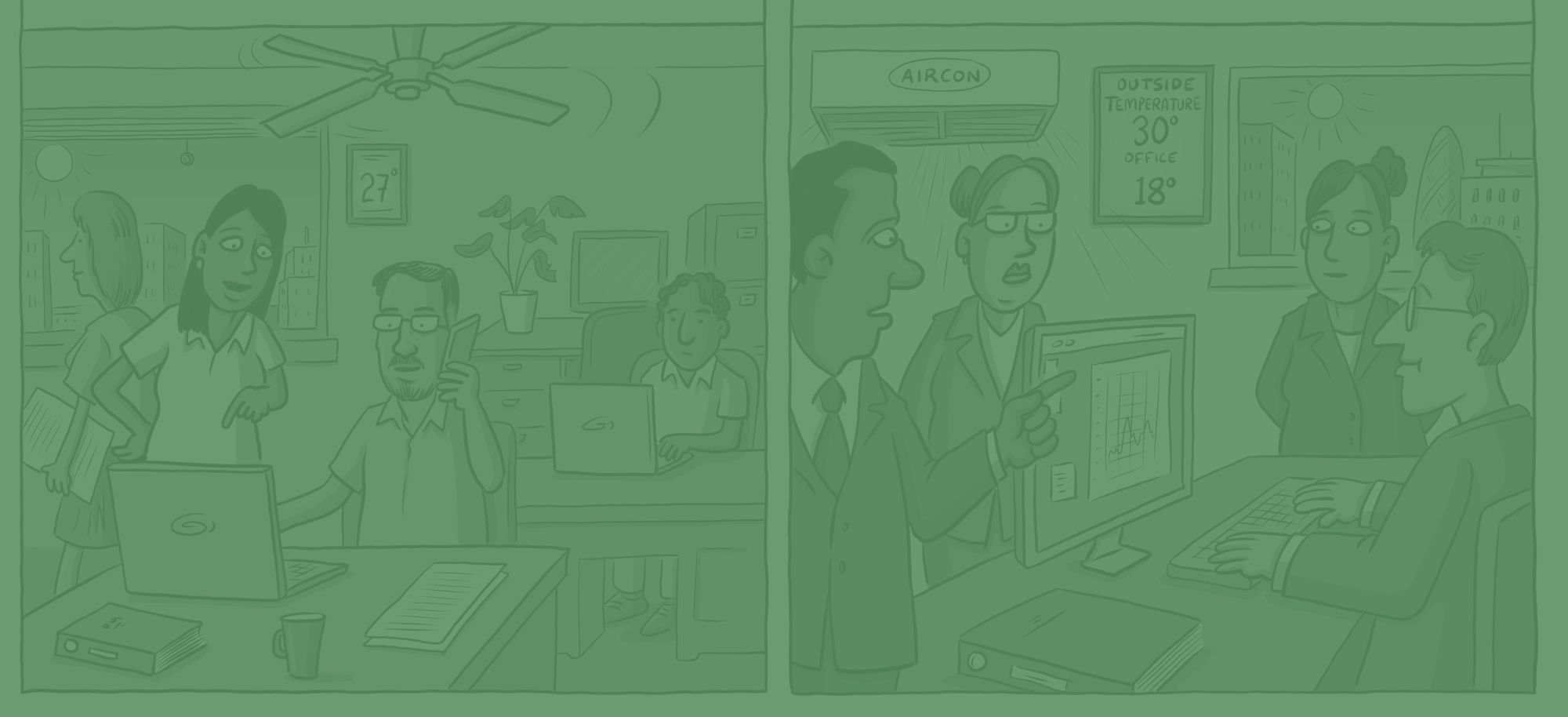
Heating and Cooling of Buildings
This Policy Briefing applies recommendations of the Rethinking Energy Demand framing report to the heating and cooling of buildings. It outlines the current context, the need to reduce the number of buildings heated and the amount of heating and cooling needed within them.
Policy Briefing
This policy briefing published by the Green European Foundation and Green House Think Tank argues for a broad rethink of the demand for heating and cooling buildings that goes beyond calls for widespread retrofit. Essential as that is – and the briefing’s authors add their voices to calls for retrofit to be scaled up as a matter of urgency – it is systemic change that is needed. It is also available in Spanish.
Climate impacts became more apparent within Europe through the record high temperatures in the summer of 2022. This has converged with a cost-of-living crisis exacerbated by the war in Ukraine and consequent shortages of Russian gas and an unprecedented increase in energy prices. Whilst governments in some countries have shown imaginative thinking to deal with the immediate energy crisis (1), this thinking needs to be extended with a view to long-term changes of behaviour, practices and social norms. Change is essential to limit energy demand in the future as a critical response to the climate crisis.
This policy briefing draws from the earlier report published in October 2022 Rethinking Energy Demand and the interviews conducted for that report with academics and thought-leaders across Europe. The briefing comprises 6 sections and offers 16 policy recommendations, across both efficiency and sufficiency measures.
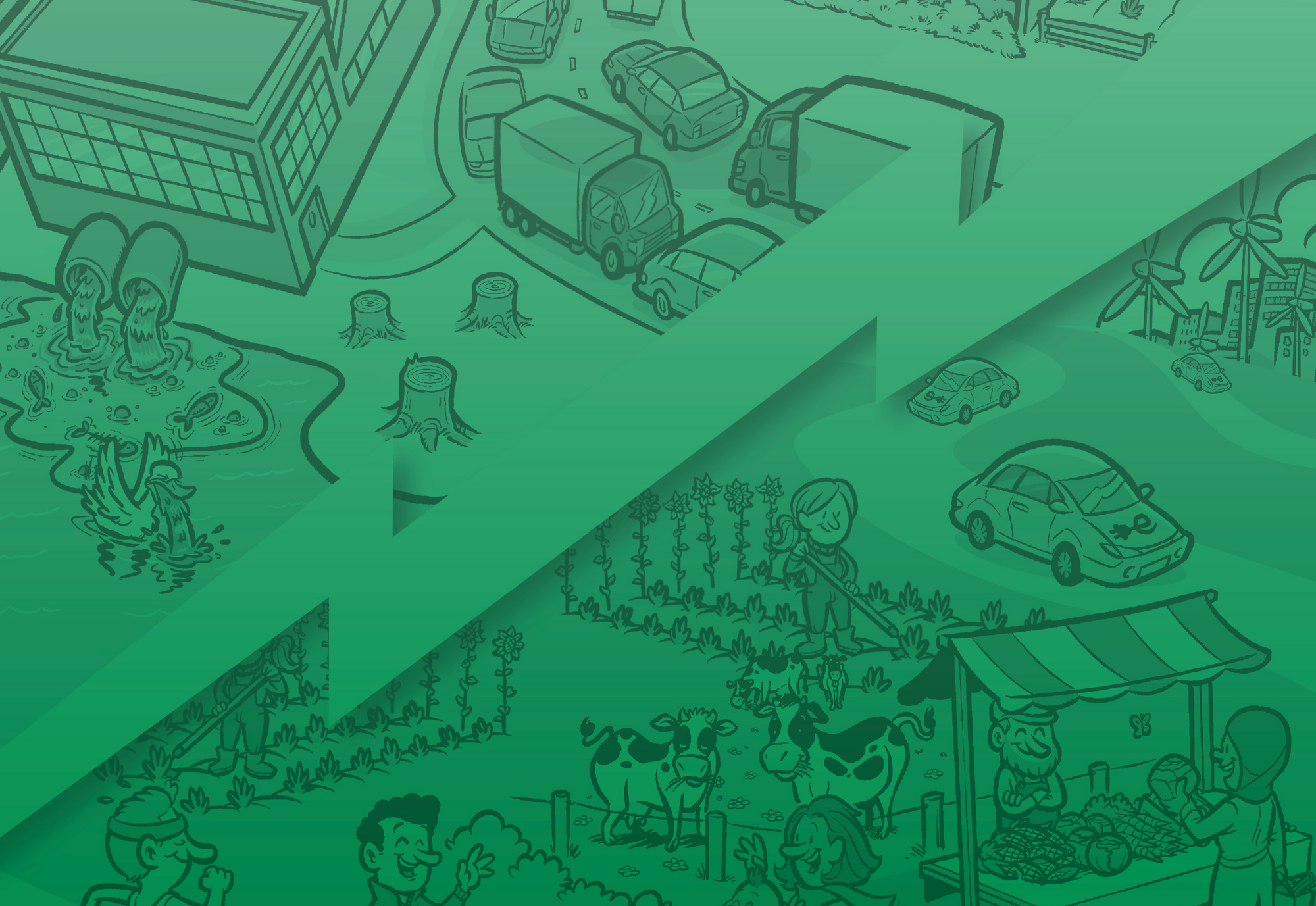
Both the earlier report and this briefing recommend a joined-up approach to policymaking, addressing factors in play which are invisible as well as visible in forming approaches to the use of energy for heating and cooling. In addition, a rebound effect from increased efficiency needs to be avoided:
‘An economy wide approach is needed to avoid energy rebound from building retrofit.’
Setting the wider context, a rebound effect is in play at a macro level across Europe with the increase in floor area for housing wiping out the benefits of increased heat efficiency from insulation over a 10-year period. (2) At the household level, the briefing warns that policies need to ensure that savingsmade on energy are not then used either to increase the use of heating (direct rebound) or to increase other high carbon emitting activities such as more travel (indirect rebound).

This briefing makes clear policy recommendations to update indoor temperature guidance which is based on outmoded and stereotypical fashions (the wearing of a man’s business suit in an office setting) with a view to avoiding wasteful and unnecessary use of energy for heating and cooling.
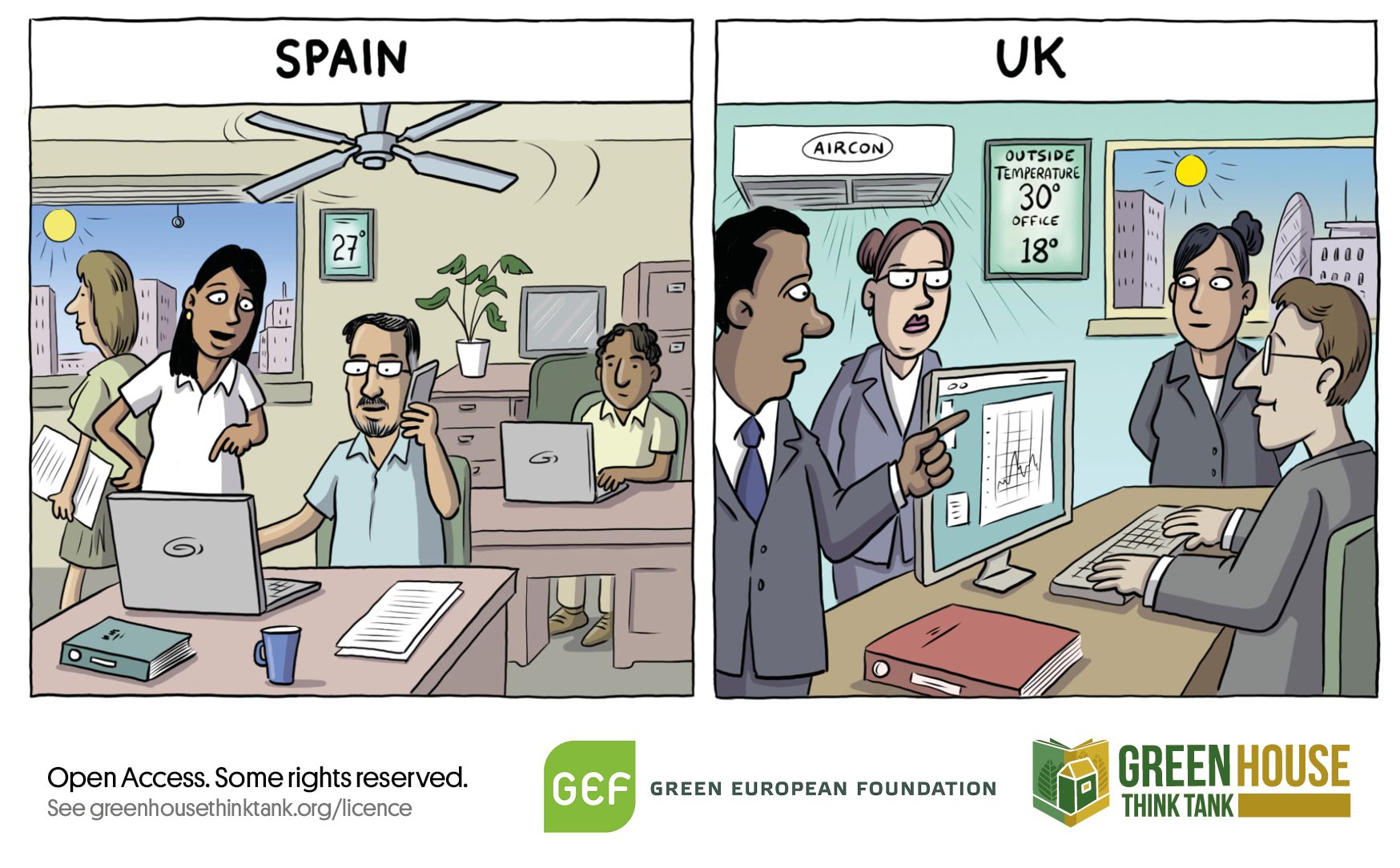
Alongside tackling excessive and wasteful use of energy for heating and cooling, the briefing clearly identifies the need to tackle the inequality of keeping warm, a phenomenon which is especially marked in the UK and Estonia, followed by Italy and Belgium. (3)
On this point, Jonathan Essex, one of the authors of this briefing, said:
“Keeping warm or cool to a level necessary for human health should be treated as a basic human need. We found data suggesting that, with the increased fuel costs in 2022, the poorest in the UK would need to spend nearly half their disposable income on keeping warm which will mean significant fuel poverty.” (4)
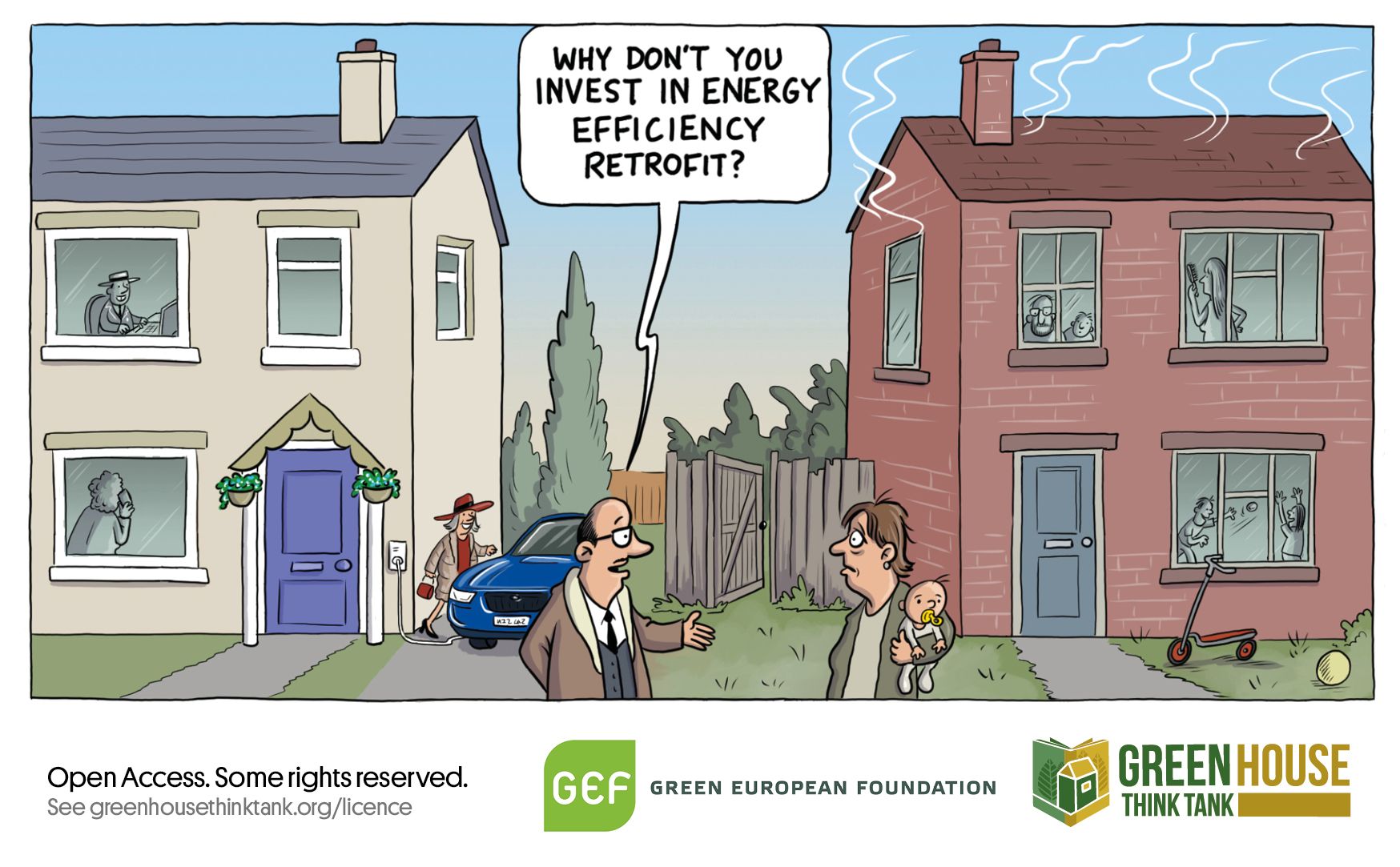
The briefing also advocates solutions which have the additional benefit of building convivial and resilient communities alongside addressing the basic human need for thermal comfort.
Nadine Storey, another of the authors, commented:
“If we prioritise the retrofit of community buildings and broaden access to these spaces, there is the potential to build community support and resilience for the long-term as well as meeting the practical need for keeping warm.”
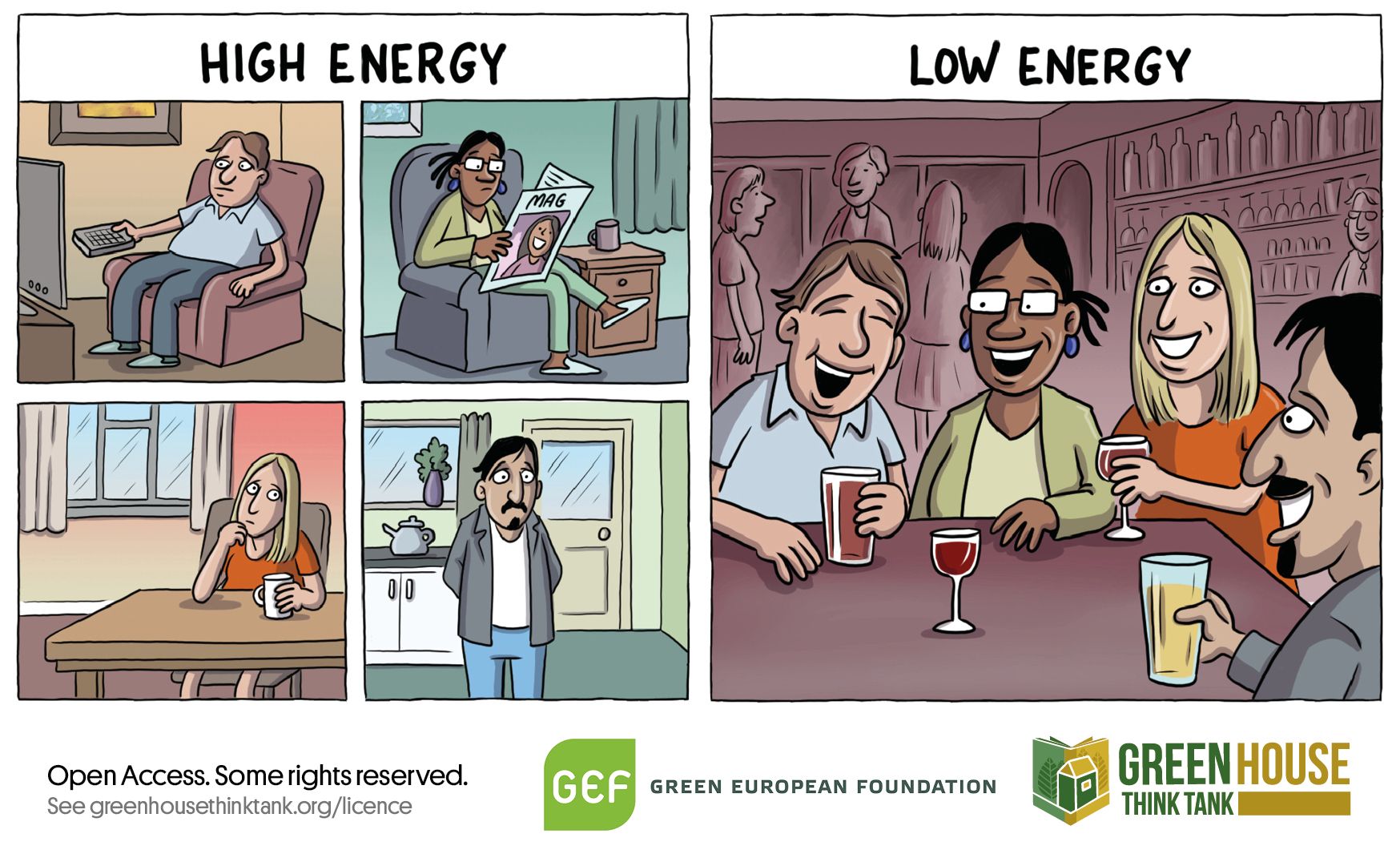
Peter Sims, also an author of this briefing, added:
“This briefing brings together a selection of policies which, if implemented, would have a big impact on the energy demand for heating and cooling. Although there are choices about how such policies are combined and implemented, just realising a couple of the policies highlighted in the briefing will not be sufficient. To bring about change, a sufficiency framing is required which means rethinking social, cultural and regulatory norms. A systemic approach which delivers a wide range of policy interventions across multiple sectors is critical.
Policymakers need to recognise that people keeping sufficiently warm or cool is the end goal, not maintaining current indoor temperatures. This is why the report highlights such a broad range of policies and calls for a sufficiency approach to delivering wellbeing for all.”







